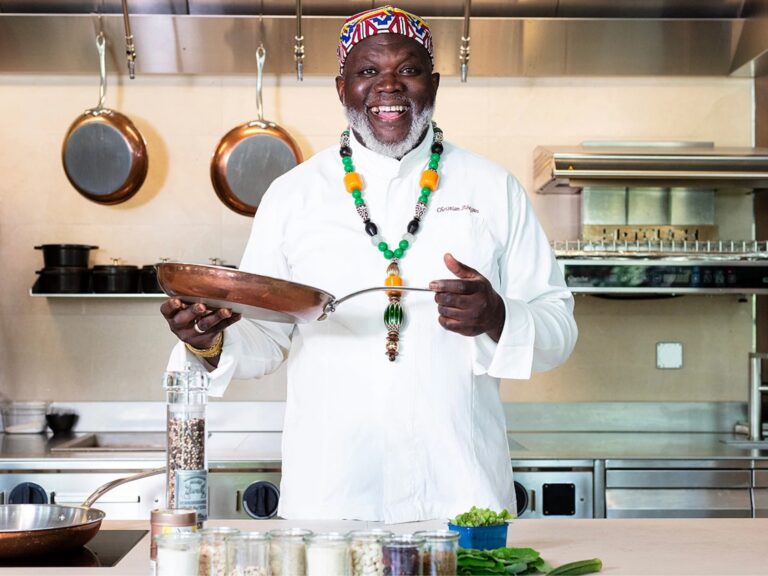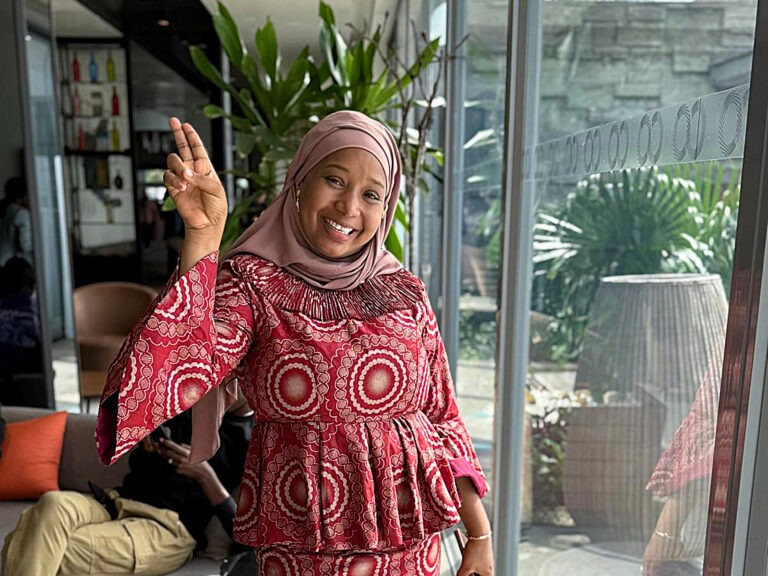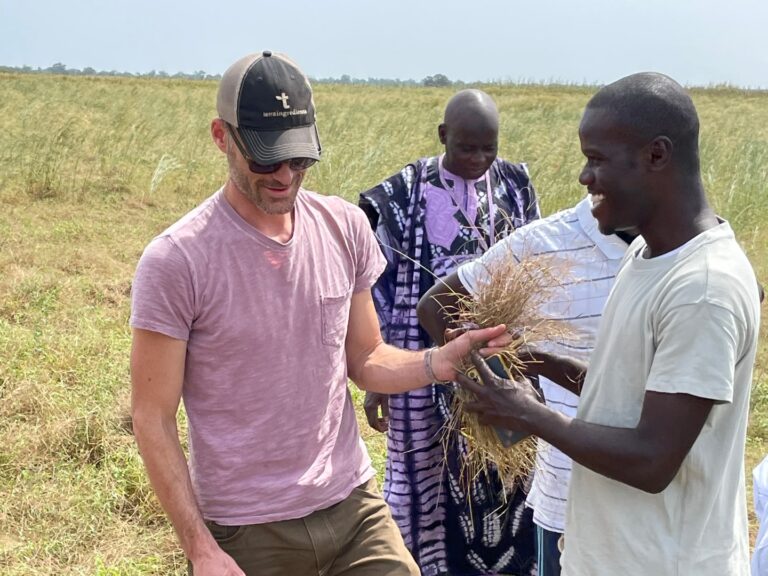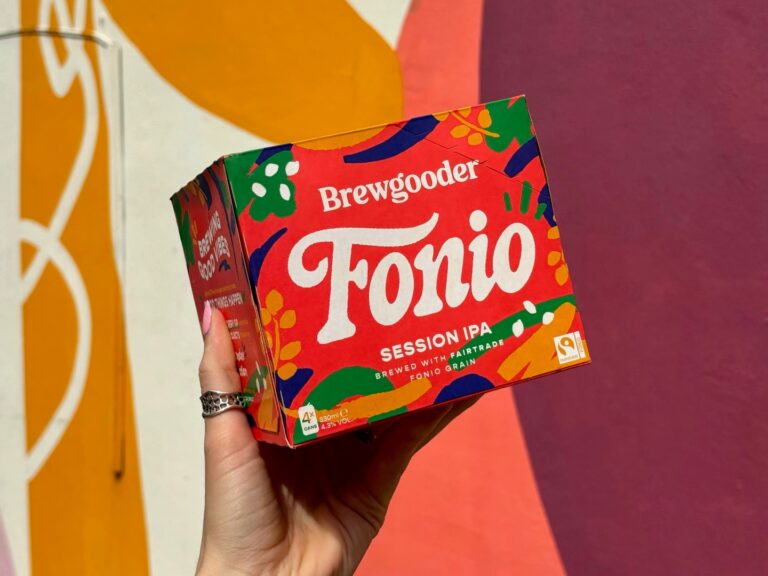Six years ago, when we launched our fonio initiative at Terra Ingredients, we knew that big things were in store for this relatively unknown, drought-resistant super grain out of West Africa—and more importantly: for the communities where fonio is grown and potential consumers alike. Now, as fonio continues to reach mainstream audiences internationally, even Bill Gates is taking notice.
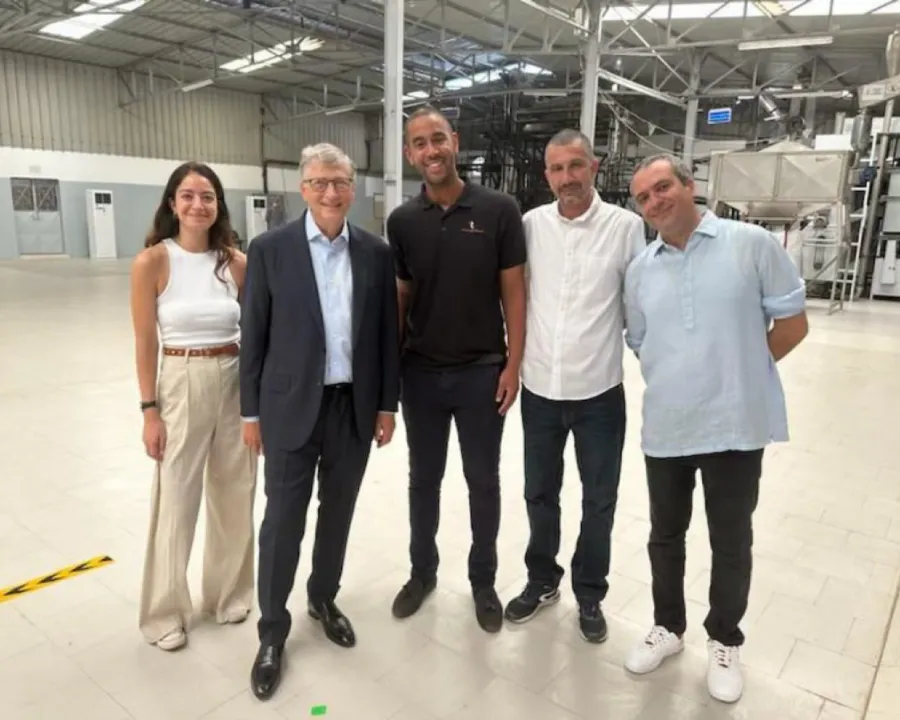
Bill Gates posing with members from Terra Ingredients and CAA while visiting our partner fonio processing facility in Dakar, Senegal.
Recently, Gates and his team took a trip to visit our partner fonio processing facility that is owned & operated by CAA in Dakar, Senegal, and we were thrilled to take part in the experience. Gates was able to see firsthand the innovations that CAA has made in order to automate fonio processing, which is traditionally done by hand and has largely kept fonio as crop grown purely for sustenance in rural West African villages. CAA’s facility is the first ever fully-automated fonio processing plant in the world and their work has been critical in creating a realistic avenue for making organic fonio accessible to international markets, while also providing viable revenues for the small-scale farmers on the ground level.
You can read the full article from Gates’ trip to Senegal on the GatesNotes Blog, which includes a short video of his trip to the facility.
Read: “Could a grain older than the wheel be the future of food”

The Gates effect
Gates’ mere presence at the facility is a massive step towards making fonio a viable crop in the international food market, but he also agrees with us that fonio could become one of the core crops to aid in fighting shared problems like global malnutrition and climate change. However, in order for any of this to have a real impact on an international scale, the commercialization of fonio will be required. Additionally, for fonio to have a legitimate impact on a food insecure region such as West Africa, this will need to be done in an ethical, sustainable way.
We’ve covered at length in recent months the nutritional composition, health benefits and potential impact for consumers of fonio, and the evidence is clear regarding organic fonio as a high quality addition to any diet around the world. Now, the biggest challenge is getting the grain from farm to table in an economically viable and sustainable manner, but also increasing the demand for it. Gates’ global influence and resources can do a lot for the latter.
As for our part, for the past six years we have been hard at work building partnerships with small-scale farmers and local organizations throughout West Africa to establish the foundation of a sustainable supply chain for fonio. We are doing this by ensuring that the farmers Terra partners with are paid a fair market rate for their crops, while also investing in technology and education in order to help them utilize fallow land, process the fonio at scale and generate a financial profit from their harvest. However, without widespread consumer adoption and large players like Bill Gates getting involved, the impact of this work will be limited.
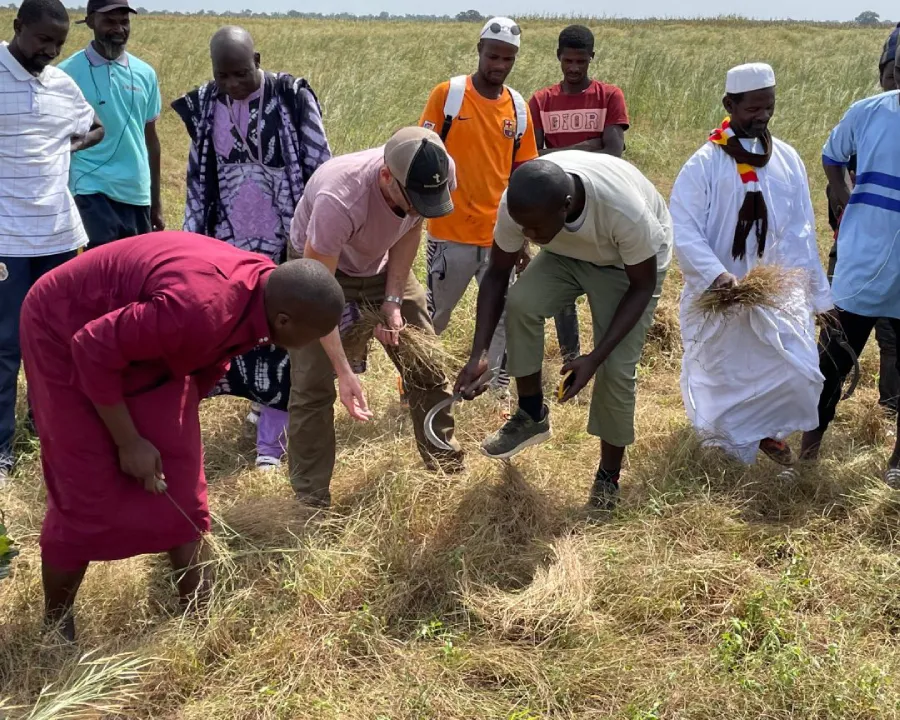
By harnessing the technological innovation from our partners at CAA, the entrepreneurial spirit of small-scale farmers throughout West Africa, and global partnerships to bring fonio to mass adoption, fonio is emerging as a symbol of resilience and opportunity in an increasingly interconnected world. Considering all of this, we are more confident than ever that the “fonio wave” is coming—and based on his recent involvement, we’re confident that Gates sees it coming too.
Gates’ visit to CAA epitomizes a collaborative vision for sustainable development, where philanthropy converges with entrepreneurship to drive positive change. As the organic fonio market gains momentum, it offers a beacon of hope for food-insecure regions in West Africa, offering not just sustenance but also economic empowerment and resilience in the face of adversity. The journey towards a fonio-powered future is characterized by optimism, ingenuity, and a shared commitment to building a more equitable and sustainable world.
